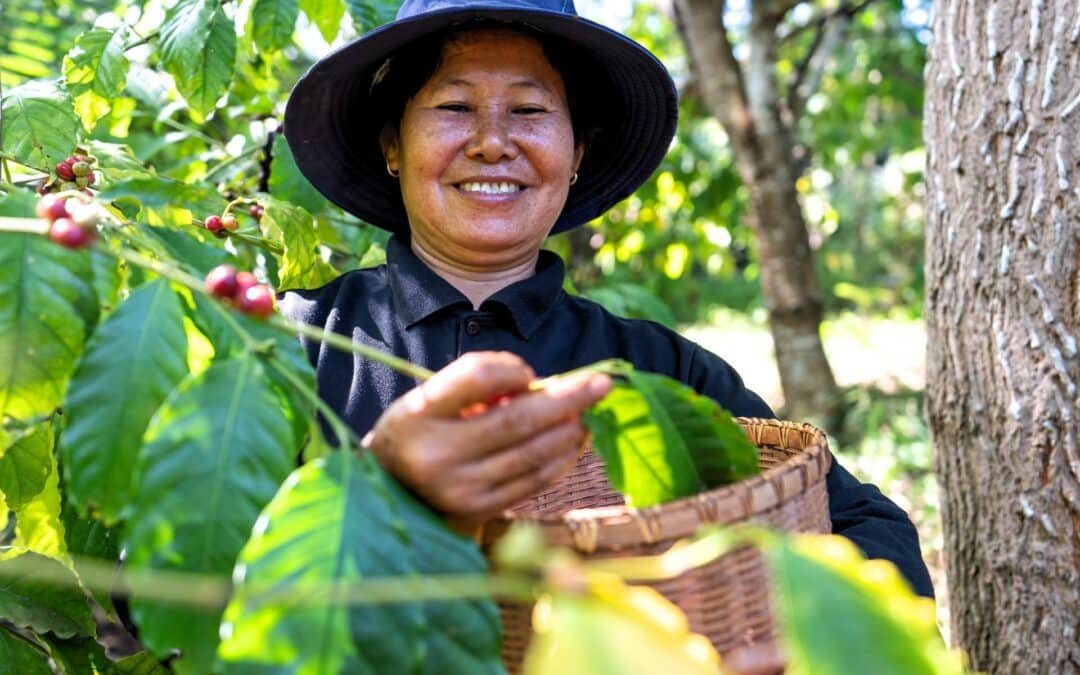In the realm of coffee consumption, the term “fair trade” has become more than just a buzzword; it’s a movement towards ethical, sustainable, and socially responsible practices. This guide delves into the significance of fair trade coffee, exploring its benefits for farmers, the environment, and consumers alike, while also addressing the challenges it faces.
Fair Trade Principles
Fair trade is built on a foundation of core principles designed to support economic empowerment, environmental stewardship, and equitable trade. For coffee, this means ensuring farmers receive fair prices for their beans, promoting sustainable farming practices, and investing in community development. These principles are crucial in the coffee industry, where traditional trade often leaves small-scale farmers vulnerable to market volatility and exploitation.
- Fair trade certification requires rigorous standards to be met.
- These standards include minimum price guarantees and community development funds.
- The approach fosters direct, long-term relationships between producers and buyers.
Benefits for Farmers
The fair trade model offers a lifeline to coffee farmers, providing them with a safety net that traditional markets do not. By ensuring a minimum price for coffee beans, fair trade protects farmers from the unpredictable swings in the global market, allowing them to plan for the future with greater security.
- Farmers receive a fair trade premium, which is used for social, economic, and environmental projects.
- Access to fair trade markets can lead to improved living conditions and reduced poverty in farming communities.
- The model encourages cooperative structures, giving farmers more negotiating power and control over their livelihoods.
Environmental Impact
Fair trade coffee is often grown using organic methods, though certification for organic and fair trade are separate. These sustainable practices not only help protect the environment but also improve the quality of the coffee.
- Shade-grown coffee preserves biodiversity and bird habitats.
- Organic farming practices reduce the use of harmful pesticides and chemicals.
- Sustainable water management practices are encouraged, protecting local water sources.
Quality and Taste
Many coffee aficionados claim that fair trade coffee offers superior taste and quality. This is attributed to the sustainable farming practices encouraged by fair trade certifications, which tend to result in a better product.
- Fair trade practices promote the growth of high-quality Arabica beans.
- The emphasis on sustainable farming can lead to a cleaner, more flavorful cup of coffee.
- Small-batch processing ensures attention to detail and quality control.
Economic Sustainability
Fair trade aims to make the coffee industry more sustainable for those at the beginning of the supply chain. By providing fair compensation, fair trade helps ensure that farmers can continue to grow coffee for future generations.
- Fair trade premiums help communities invest in education and infrastructure, leading to long-term economic development.
- By stabilizing incomes, fair trade helps communities become less vulnerable to poverty.
- The model supports diversification, helping farmers to become less dependent on the volatile coffee market.
Consumer Impact
Choosing fair trade coffee has a direct impact on the lives of coffee farmers and their communities. It allows consumers to be part of a positive change, supporting ethical and sustainable practices with every purchase.
- Consumers have the power to drive demand for ethically produced goods.
- Fair trade labels make it easier for consumers to make informed choices.
- By choosing fair trade, consumers contribute to a more equitable global trade system.
Challenges and Criticisms
Despite its benefits, the fair trade system is not without its challenges and criticisms. Some argue that the certification process can be expensive and bureaucratic, potentially excluding the smallest or most marginalized producers.
- The fair trade system still represents a small fraction of the global coffee trade.
- Critics argue that more needs to be done to ensure the benefits reach the poorest farmers.
- The effectiveness of fair trade in addressing systemic issues in the coffee industry continues to be a topic of debate.
How to Support Fair Trade Coffee
Supporting fair trade coffee is easier than ever, with many brands and products readily available. Consumers can look for the fair trade certification label when shopping for coffee, whether online or in stores.
- Research brands and products that are certified fair trade.
- Consider purchasing from local coffee shops and roasters that source fair trade beans.
- Spread the word about the importance of fair trade coffee to encourage others to make ethical choices.
In examining the importance of fair trade coffee, it’s clear that this movement has a profound impact on the industry, from the farmers who grow the beans to the consumers who enjoy their daily cup. Fair trade offers a path towards a more equitable and sustainable coffee industry, emphasizing the value of ethical practices and quality products.
Key Takeaways on the Importance of Fair Trade Coffee
- Fair trade principles ensure farmers receive fair prices and support sustainable farming practices.
- The benefits for farmers include economic security, community development, and a stronger voice in the global market.
- Environmental sustainability is a core aspect of fair trade coffee, promoting organic farming and biodiversity.
- Consumers play a crucial role in supporting fair trade by making informed purchasing decisions.
Frequently Asked Questions
1. What makes coffee fair trade certified?
Fair trade certification means the coffee has been produced and traded under strict standards that ensure fair compensation, community development, and environmental sustainability.
2. Is fair trade coffee more expensive?
While fair trade coffee may sometimes be slightly more expensive, the price difference is often minimal and reflects the true cost of sustainable and ethical production.
3. Can fair trade coffee help reduce poverty?
Yes, by ensuring farmers receive a fair price for their coffee, fair trade can help lift communities out of poverty and support economic development.
4. How does fair trade benefit the environment?
Fair trade promotes sustainable farming practices that protect the environment, including organic farming, water conservation, and biodiversity.
5. Where can I buy fair trade coffee?
Fair trade coffee is widely available in supermarkets, specialty stores, and online. Look for the fair trade certification label to ensure authenticity.
We’re an elite coffee shop bringing you a commercial, full, craft coffee shop experience at one of our locations or wherever your special event may be! We would love to cater your event with trained baristas and serve hand crafted espresso drinks, coffees, frappes, smoothies, and teas to you and your guests.


